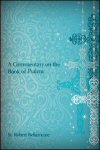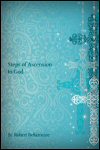The Works of St. Robert Bellarmine (3 vols.)
Digital Verbum Edition
Overview
St. Robert Bellarmine, a Doctor of the Church, was a prominent figure in the Counter-Reformation of the sixteenth century. His writings were often controversial, but many—particularly in his later years—were simple, and intended to help the ordinary man on his spiritual journey. With the Works of St. Robert Bellarmine, you’ll study Bellarmine’s verse-by-verse commentary on the Psalms, follow his 15 practical steps for growing closer to God, and find comfort in his meditations on facing mortality.
In the Verbum editions, these volumes are enhanced by amazing functionality. Important terms link to dictionaries, encyclopedias, and a wealth of other resources in your digital library. Perform powerful searches to find exactly what you’re looking for. Take the discussion with you using tablet and mobile apps. Your software brings the most efficient and comprehensive research tools together in one place, so you get the most out of your study.
Glean more insight from Doctors of the Church with the Classic Wisdom Collection.
Key Features
- Offers verse-by-verse commentary on the Psalms and practical steps for growing closer to God
- Provides insight into Post-Reformation spirituality
- Presents the wisdom of a modern Doctor of the Church
Product Details
- Title: The Works of St. Robert Bellarmine
- Author: St. Robert Bellarmine
- Volumes: 3
- Pages: 699
- Christian Group: Catholic
- Resource Type: Collected Works
- Topic: Post-Reformation, Spirituality
Individual Titles

A Commentary on the Book of Psalms
- Author: St. Robert Bellarmine
- Publisher: Companyname
- Publication Date: 1866
- Pages: 382
St. Robert Bellarmine gives verse-by-verse commentary on the Psalms as they are in the Vulgate and rendered in the Douay-Rheims Bible. Nearly 400 pages of wisdom, each psalm is extensively commented on with Bellarmine’s usual eloquence.

Steps of Ascension to God
- Author: St. Robert Bellarmine
- Publisher: W. Freeman
- Publication Date: 1705
- Pages: 271
In 15 steps, St. Robert Bellarmine outlines practical ways in which believers can get closer to God. Using Scripture and the words of the Church Fathers, Bellarmine provides the blueprints for an internal “ladder by which he may ascend as high as to God Almighty.”

The Art of Dying Well
- Author: St. Robert Bellarmine
- Publisher: Richardson and Son
- Publication Date: 1847
- Pages: 46
Though known for his more controversial writings, in his retirement St. Robert Bellarmine wrote several devotionals that both Catholics and Protestants greatly admired. The Art of Dying Well is a beautiful meditation on death, and contains many practical lessons “on the most important of all arts.”
About Robert Bellarmine
St. Robert Bellarmine (1542–1621) studied theology at the University of Padua and the University of Leuven. He was the first Jesuit to teach at the University of Leuven, and the subject of his course was Thomas Aquinas’ Summa Theologica (22 vols.). After seven years, he moved and taught theology at the new Rome College. In 1592, he was made rector of the Roman College, then examiner of bishops in 1598, and then cardinal in 1599. In 1602 he was made archbishop of Capua, and later served as archbishop of Montepulciano until his retirement. He was prominent in the Counter-Reformation. In 1930, he was canonized by Pope Pius XI. He is a Doctor of the Church.
Glean more insight from Doctors of the Church with the Classic Wisdom Collection.
Key Features
- Offers verse-by-verse commentary on the Psalms and practical steps for growing closer to God
- Provides insight into Post-Reformation spirituality
- Presents the wisdom of a modern Doctor of the Church
Product Details
- Title: The Works of St. Robert Bellarmine
- Author: St. Robert Bellarmine
- Volumes: 3
- Pages: 699
- Christian Group: Catholic
- Resource Type: Collected Works
- Topic: Post-Reformation, Spirituality
About Robert Bellarmine
St. Robert Bellarmine (1542–1621) studied theology at the University of Padua and the University of Leuven. He was the first Jesuit to teach at the University of Leuven, and the subject of his course was Thomas Aquinas’ Summa Theologica (22 vols.). After seven years, he moved and taught theology at the new Rome College. In 1592, he was made rector of the Roman College, then examiner of bishops in 1598, and then cardinal in 1599. In 1602 he was made archbishop of Capua, and later served as archbishop of Montepulciano until his retirement. He was prominent in the Counter-Reformation. In 1930, he was canonized by Pope Pius XI. He is a Doctor of the Church.